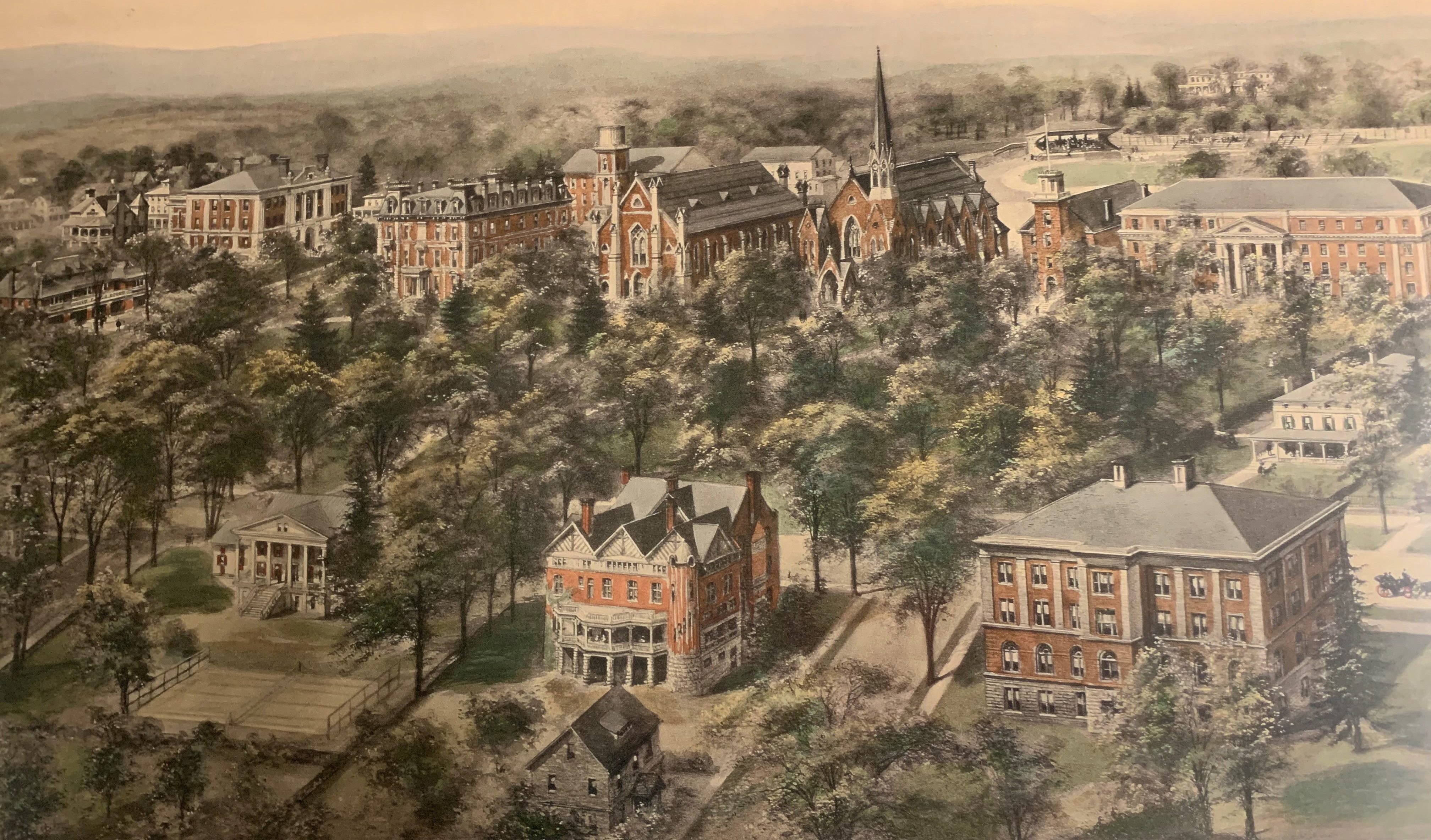The Wesleyan community has responded in wide, inspiring ways to the COVID-19 pandemic. It is rare that we know what will become a historic moment while it’s occurring, but it’s clear that we are all living and making history right now. As an archivist, I am always interested in recording these efforts so that they become a part of our history and later, with the benefit of hindsight, give us and future generations of Wesleyan the ability to reflect on and learn from them.
As part of this effort the University Archives is reaching out to students, faculty, staff, and alumni to collect your personal stories, photographs, videos, audio recordings, and other materials that reflect your experiences during the COVID-19 crisis.
How has life changed for you as a student, as a staff member, or as a member of the faculty since Covid-19 began? How are you staying connected to the people in your life and to others at Wesleyan during this period of social/physical distancing? What do you want people in the years to come to understand or know about this time period? Has this time inspired you to create a piece of art, a song, a performance, etc.? In addition to the experiences of students, faculty, and staff, we want to hear from alumni and members of the larger Wesleyan community as well.
These experiences will be collected, preserved for posterity, and made available by Wesleyan’s Special Collections & Archives for future generations.
If you have any questions about this project, please email sca@wesleyan.edu.
Take care, stay safe, and we hope to see you on campus again soon!
How to contribute
- Share a story, essay, or other piece of writing
- Share a photograph or image
- Share a video recording
- Share an audio recording
- We are open to other ideas, email sca@wesleyan.edu with them!
Instructions
To upload files through the above Google Forms, you must have a Google account. All Wesleyan faculty, staff, and students have a G Suite account. To access G Suite and login to your Wesleyan Google account, go to: https://accounts.google.com.
If you would like to contribute to this project and you do not have access to a Google account, you can create a Google account for free by visiting Google.com, clicking on the “Sign In” tab, and following instructions to “Create account.”
If your contribution doesn’t fit within one of the forms or you wish to not create a Google account, please contact sca@wesleyan.edu for assistance.
Ideas
Examples of contributions to this project include (but are not limited to):
- A reflective essay on your experience that you wrote for a class or wrote for yourself
- Curricular materials that you created for a class that you are now teaching online
- A photograph of your at-home workspace
- An audio or video recording of an interview conducted with a family member
- An original work of art
- A poem or short story
- A link to a blog post or social media content that you created – email links directly to sca@wesleyan.edu
If you’d like to write a reflective response here are some examples of possible topics (not limited to) for you can think about:
- Where are you living during the COVID-19 pandemic?
- What is daily life like for you? How restrictions and quarantine have affected your daily life and adjustments you have had to make. This could include anything from grocery shopping to your breakfast routine.
- How are work and classes going for you? Experiences with distance learning and how you’ve had to adjust your academic routines either as a student or professor.
- Do you currently have any family members or are you currently affected by the COVID-19 virus?
- How you learned of the University’s decisions to move classes online and cancel activities.
- Experience of actually leaving campus – thoughts and emotions about the process.
- Impressions of the media coverage surrounding the virus and pandemic, both before it arrived in the United States, as well as after.
- Current restrictions in your home and/or where you are living after campus.
- How restrictions and quarantine have affected your family’s routines and daily life.
- Any volunteering or community work you may have engaged with such as delivering groceries to vulnerable families, donating blood, etc.
- The role played by technology during the pandemic – as a method of sharing information, as a method of communicating, or as a method of entertainment.


